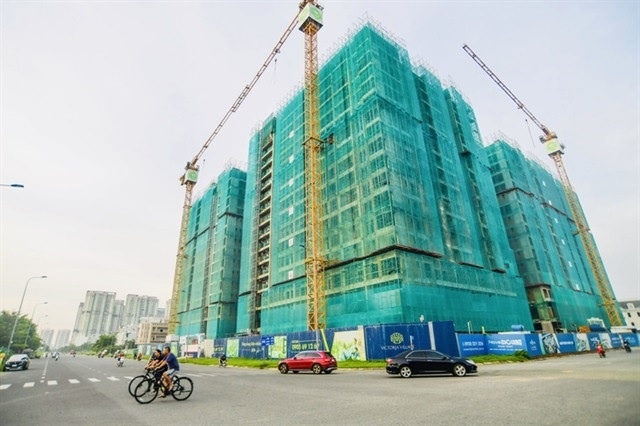|
Real estate groups rush to restructure their bond debts
Many real estate firms are clearing bond debts to explore new opportunities, with bondholders that faced delayed payments in the last couple of years opting for debt restructuring over liquidating collateral assets.

Real estate groups rush to restructure their bond debts, Illustrative image (Photo: tuoitre.com.vn)
|
Balancing bond debts has become a priority for real estate enterprises over recent years following scandals surrounding corporate bonds. Many companies are resorting to debt restructuring, including increasing bank loans or issuing shares to raise capital and reduce bond liabilities.
According to a market overview on corporate bonds published by VIS Ratings on January 9, a total of 22 per cent of bonds, equivalent to $208.33 million, maturing in January, are at risk of default. Among these, two out of nine bonds with default risks belong to the residential real estate sector.
Novaland has taken significant steps to restructure its financial obligations. At the end of December, it announced a plan to buy back up to $291.7 million in bonds before maturity, a process set to conclude by the end of January.
The buyback price is set at 100 per cent of the face value, plus accrued interest up to the transaction date. As part of this resolution, Novaland repurchased all five bond lots worth a total of $64.58 million on the last day of 2024.
Additionally, Novaland adjusted the conversion price and ratio for its $300 million international convertible bonds, effective January 5.
Elsewhere, Nam Long Investment Corporation completed the early repurchase of two bond lots totalling $41.67 million. These bonds were originally due in 2029 but were repurchased five years early. In November, Nam Long issued $41.67 million in bonds with a three-year maturity and a fixed interest rate of 10.11 per cent for the first four periods, secured by collateral.
Several other companies have also focused on early bond buybacks. Hai Phat Investment and Real Estate Business Corporation fully repurchased $16.25 million in bonds in December, eliminating its bond liabilities.
An Gia Real Estate Investment and Phat Dat Real Estate Development also aggressively worked towards reducing their bond debts to zero.
VIS Ratings report highlighted that new regulations will enhance market transparency and mitigate risks from both issuers and individual investors. “High-risk companies will face restrictions on public bond issuance, and stricter criteria, such as debt-to-equity ratios, bondholder representation, and mandatory credit ratings, will apply,” the report stated.
Despite these developments, the real estate bond market remains cautious. According to experts from FiinRatings, investors remain wary of risks associated with real estate bonds, evident from shorter issuance terms and higher interest rates, even though base credit rates have stabilised over the past two years.
A December report by the Vietnam Bond Market Association revealed that enterprises repurchased $1.14 billion worth of bonds early, a 36 per cent decrease from 2023.
“This indicates a slowdown in bond repurchase activities. In 2025, approximately $9 billion in bonds will mature, with real estate accounting for over 55 per cent,” the report said.
Shinhan Securities Vietnam predicted that listed companies’ bond repayment obligations in 2025 will remain similar to 2024. However, improved business activities are expected to reduce risks compared to the past two years.
“Positive signals from the real estate market, such as rising prices and project resumptions, indicate recovery. However, challenges persist as these improvements are limited to certain segments and regions,” Shinhan Securities said.
Additionally, the revised securities law, effective from early 2025, is expected to address corporate bond market inefficiencies.
Nguyen Van Dinh, chairman of the Vietnam Association of Real Estate Brokers, remarked that although significant bond maturities loom following two-year extensions, the pressure is manageable for housing developers.
“Improved supply and liquidity enable firms to secure substantial advance payments from buyers,” added Dinh. “The real estate market in 2025 is anticipated to perform better than in previous years, bolstered by regulatory reforms that will unlock hundreds of housing and urban projects nationwide.”
VIR
|